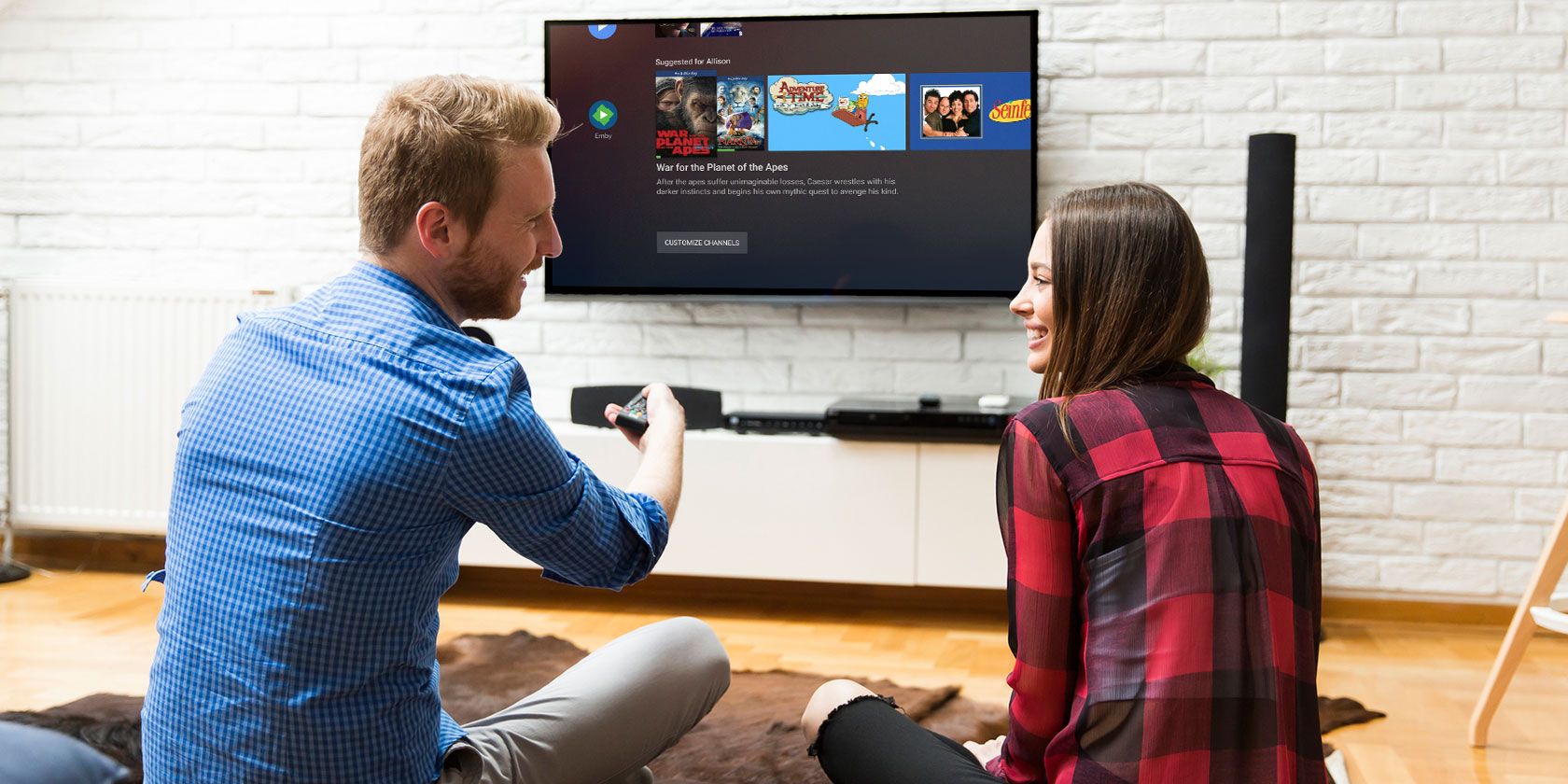
Plex and Kodi have dominated the media center landscape for a long time, but Emby is becoming an increasingly popular choice among users.
In truth, Plex and Emby are more alike than Plex and Kodi. First and foremost, both are dedicated media servers. In contrast, Kodi either requires expert-level knowledge in MySQL or a far-from-ideal workaround to make it work as a media server.
So, if you’re new to the world of cordcutting and home media, which one should you choose? Emby or Plex? Which is the best? Keep reading to find out.
Emby vs. Plex: Cost
We’ll start with a quick word on cost. Both Plex and Emby offer a premium plan. They introduce extra features which make the apps shine (though some of you might decide you don’t need a Plex Pass).
A Plex Pass will set you back $14.99 for three months or $119.99 for a lifetime subscription. Emby Premiere is similarly priced; the monthly plan costs $4.99/month and the lifetime subscription is $119.
Emby vs. Plex: Initial Setup
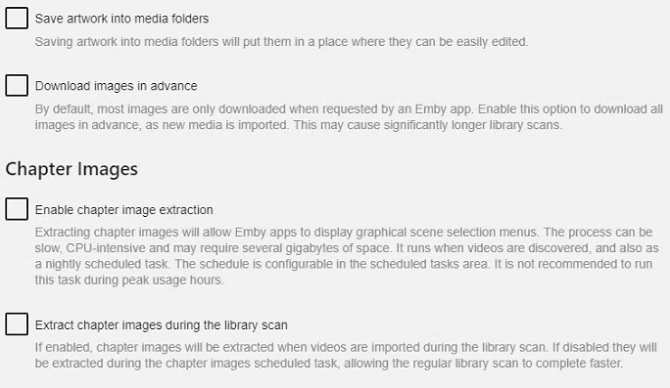
Both Plex and Emby use a client/server setup. You need to install the server app on the computer or NAS drive where you keep your local media and the client app on any device on which you want to enjoy the content.
Setting up both apps’ client software is as easy as installing the program and entering a code. The complicated part is setting up the server software.
The process on Plex is more straightforward than on Emby. In broad terms, it’s more geared towards the mass market and non-tech-savvy users.
For example, when you’re creating a movie library on Emby, you’ll see advanced options such as whether to enable chapter image extraction and whether to download metadata images in advance. The settings will appeal to experienced heads but may be off-putting for newcomers.
Emby vs. Plex: Navigation
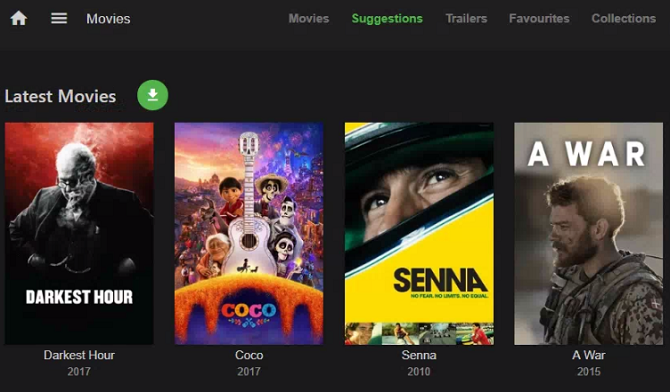
Thanks to its more substantial budget, Plex is the more polished of the two apps. As such, it’s fair to say it offers a more enjoyable and easy-to-use navigation experience.
Of course, much of this is subjective; there’s nothing wrong with Emby’s navigation, Plex just feels more professional. For someone who’s used to dealing with slick operating systems on Apple TV, Android TV, and other set-top boxes, the switch to Emby can feel jarring.
Emby vs. Plex: Customization
One of the areas in which Kodi has an advantage over Plex is in the level of customization available. Emby shares this advantage. If you like to tinker with endless settings and tweak the UI to your own specifications, Emby is the better of the two.
If you have the knowledge, you can apply your own CSS to the web app, change the login screen, use other people’s themes, and a whole lot more. None of which is possible on Plex.
Much of the customization is possible thanks to Emby’s open source nature. Plex is closed source.
Emby vs. Plex: Live TV and DVR
Plex and Emby both offer a live TV and DVR feature. Whereas Live TV on Plex is restricted to premium users, Emby users can watch live TV for free through the web app but will need to subscribe to Premiere to watch it on any other device.
Naturally, there are some design differences, such as Plex’s integrated electronic program guide (EPG). However, in terms of functionality, they are almost identical.
Once again, however, Plex has the edge when it comes to supported equipment. Emby only supports the HDHomeRun tuner natively (and Hauppauge devices on Windows). Plex supports HDHomeRun, DVBLogic, AVerMedia, and Hauppauge. You can add support for other tuners on Emby by using a live TV plugin.
It’s also worth mentioning Plex’s news feature. It uses machine learning to recommend stories that it thinks you will be interested in. There is no equivalent feature on Emby.
Emby vs. Plex: Local Streaming
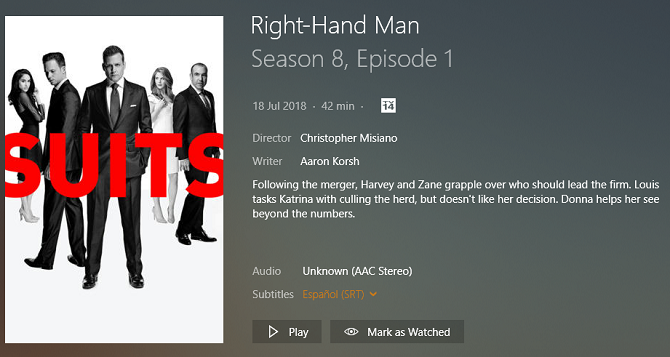
This is a big win for Plex. Assuming all your devices are on the same network, Plex lets you stream your content around your home for free. You do not need to subscribe to Plex Pass.
Emby, on the other hand, is a mixed bag. It will only let you enjoy streamed content via the web app, Roku, Apple TV, and Samsung Smart TVs.
If you want to stream content on Android TV, Amazon Fire TV, Android and iOS tablets, and other devices, you will need to either pay the App Unlock fee on a case-by-case basis or subscribe to Premiere.
Emby vs. Plex: Remote Streaming
The ability to stream content when you’re away from home is a premium feature on both apps.
Assuming you have the subscription, you can download content for offline viewing, sync a video’s “watched status” between devices, and stream content directly from your server.
Setting up remote streaming on Plex and Emby is as simple as enabling the feature in the server’s Settings menu.
Emby vs. Plex: Add-Ons
Plex and Emby both support third-party extensions. They are made by the community to enhance and extend the apps’ core functionality.
One of Plex’s best features—the Unsupported App Store—is a third-party extension. It allows you to access some brilliant unofficial Plex channels. The Unsupported App Store is easy to set up and install. There are also dozens of officially-supported add-ons, called Channels, to choose from.
Because Emby is the newer of the two apps and has a smaller userbase, its list of third-party plugins is less extensive.
Nonetheless, both apps have many of the big-name plugins that most users would want, including TuneIn Radio, Trakt, and ITV Player.
Emby vs. Plex: Device Compatibility
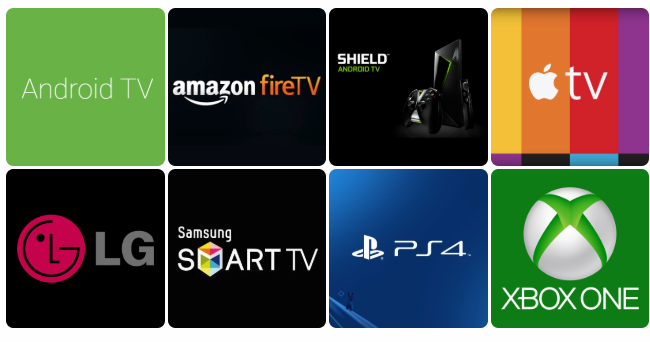
The Plex and Emby server apps are both available on Windows, Mac, Linux, FreeBSD, Docker, and a wide selection of NAS devices. The only difference is that Plex supports Drobo NAS devices whereas Emby does not.
Both client apps also support all of the major desktop operating systems, mobile operating systems, and streaming boxes. However, once again, there are some devices and services which Plex supports but Emby does not. They include Sonos and Android Auto.
Also, on Emby, you need to subscribe to Premiere to access the Amazon Alexa plugin.
Emby vs. Plex: And the Winner Is…
Look, we have nothing against Emby. It’s a great app that deserves enormous praise for taking the fight to Plex. Competition is a good thing; at the very least it will force Plex not to rest on its laurels.
However, it’s hard to argue that Plex isn’t the better of the two. It offers more native features, supports more external devices, provides a smoother user experience, and has a more polished interface.
We’re sure some of you will disagree with us, so please leave your opinions in the comments. And if you’d like to learn more about Plex’s features, check out our list of Plex plugins for power users, how to use subtitles on Plex, and how to watch Plex in virtual reality.
Image Credit: boggy22/Depositphotos
Read the full article: Emby vs. Plex: Which Is Better?
from MakeUseOf https://ift.tt/2KEO3uZ
via IFTTT

0 comments: